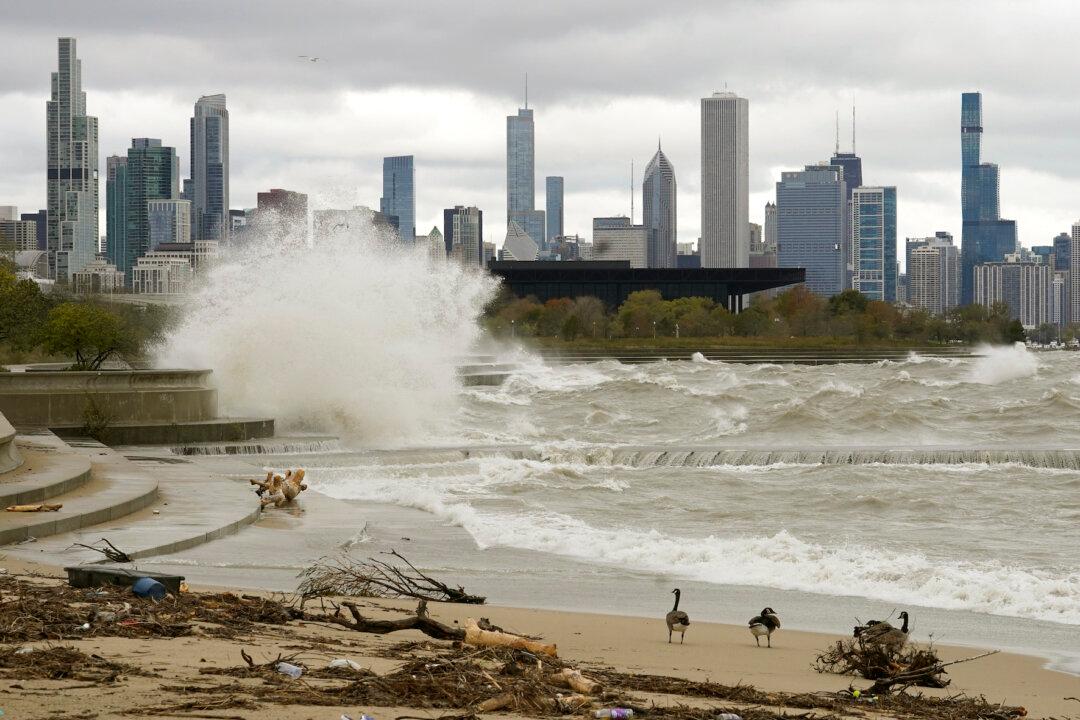FREDERICKTOWN, Mo.—The National Weather Service has confirmed a strong tornado that thrashed the southeastern Missouri city of Fredericktown as strong storms that swept the state and moved into Illinois overnight damaged buildings and knocked out power, but left no serious injuries.
The National Weather Service confirmed an EF-3 tornado hit Fredericktown Sunday night, damaging homes, businesses and the main electrical substation that feeds power to the city of about 4,000. A tornado with that rating is considered strong, and wind speeds range from 136-165 mph.





